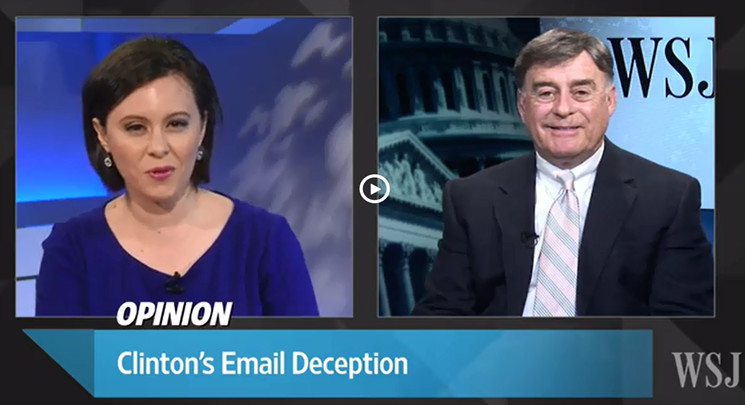In July 2012, CoA Institute published “Gmail.gov: When Politics Gets Personal, Does the Public Have a Right to Know?” in the Federalist Society legal journal Engage.[1] More than two years before Secretary Clinton’s decision to use a personal email address and private server to conduct official government business first came to light, CoA Institute warned:
“The practical reality is that … federal agency employees have and will continue to conduct agency business using personal e-mail accounts and personal communications devices. Until Congress or the courts definitively clarify whether these work-related communications are subject to FOIA’s disclosure provisions, a dangerous loophole enabling unscrupulous agency employees to intentionally evade the light of public scrutiny may exist.”
CoA Institute noted the practical and technical problems associated with obtaining “agency-business-related communications that are never captured on government computers or servers,” which are nonetheless agency records subject to the Freedom of Information Act (FOIA)—a federal transparency statute. But as CoA Institute said in 2012, “federal executive branch agency personnel should not be able to use personal communications devices, such as home computers and personal e-mail accounts, to intentionally circumvent the FOIA’s disclosure provisions and evade public scrutiny of their professional conduct.”
A May 2016 State Department Inspector General report examining Secretary Clinton’s use of a private email account and server to conduct government business has now confirmed CoA Institute’s suspicions, illustrating the need for action. The IG Report reveals email correspondence suggesting that the private Clinton server and Clintonemail.com were used, at least in part, to intentionally shield Clinton’s work-related communications from public disclosure under FOIA:
“In August 2011, … [t]he then-Executive Secretary informed staff of his intent to provide two devices for the Secretary to use: ‘one with an operating State Department email account (which would mask her identity, but which would also be subject to FOIA requests)….’ In another email exchange, the Director of S/ES-IRM noted that an email account and address had already been set up for the Secretary and also stated that ‘you should be aware that any email would go through the Department’s infrastructure and subject to FOIA searches.’ However, the Secretary’s Deputy Chief of Staff rejected the proposal to use two devices, stating that it ‘doesn’t make a whole lot of sense.’ OIG found no evidence that the Secretary obtained a Department address or device after this discussion.”
The IG report indicates that Clinton’s email practices were driven, at least in part, by a sophisticated understanding of FOIA and a deliberate effort to frustrate the public’s right to know what the government is up to, as CoA Institute warned in 2012.
[1] Cause of Action Institute, Gmail.gov: When Politics Gets Personal, Does the PublicHave a Right to Know?, Engage, Vol. 13, Issue 2 (July 2012), available at http://www.fed-soc.org/publications/detail/gmailgov-when-politics-gets-personal-does-the-public-have-a-right-to-know (last visited June 1, 2016).

